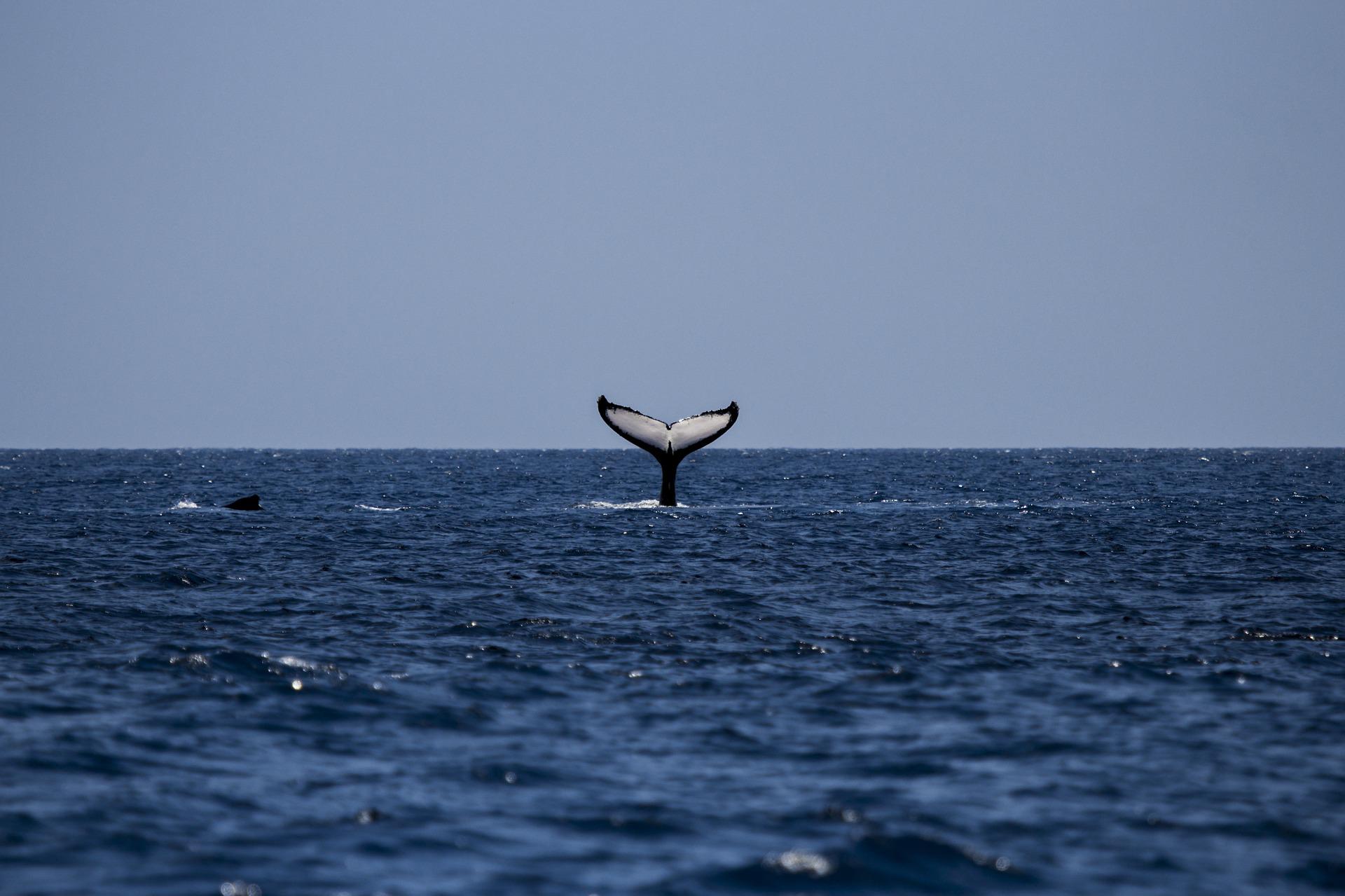
The ocean is central to the health of the planet and the well-being of human societies – sustaining livelihoods and supporting abundant and diverse marine life and ecosystems. Human activity threatens marine ecosystems through relentless overfishing, habitat disruption, and pollution. Our publications explore the negative impacts of human interaction and science and innovation to guide efforts to defend and sustain these valuable resources.

Regular use of sunscreens has been shown to reduce the risk of sunburn and skin cancer, and slow photoaging of skin. Sunscreens can rinse off into water where people are swimming or wading, and can also enter bodies of water through wastewater such as from bathing or showering. As a result, the …[more]

Reckoning with the U.S. Role in Global Ocean Plastic Waste
An estimated 8 million metric tons (MMT) of plastic waste enters the world’s ocean each year – the equivalent of dumping a garbage truck of plastic waste into the ocean every minute. Plastic waste is now found in almost every marine habitat, from the ocean surface to deep sea sediments to the …[more]

Data and Management Strategies for Recreational Fisheries with Annual Catch Limits
Marine recreational fishing is a popular activity enjoyed by more than 9 million Americans annually and is a driver of the American ocean-or blue-economy. To ensure that fish populations are not overexploited, the NOAA Fisheries’ Marine Recreational Information Program (MRIP) monitors …[more]

The Use of Limited Access Privilege Programs in Mixed-Use Fisheries
A central goal of U.S. fisheries management is to control the exploitation of fish populations so that fisheries remain biologically productive, economically valuable, and socially equitable. Although the Magnuson-Stevens Fishery Conservation and Management Act led to many improvements, a number …[more]

Biodiversity at Risk: Today’s Choices Matter
A growing body of evidence has sounded the alarm that the biodiversity that supports and sustains life on Earth is at risk. Habitat destruction, resource exploitation, and climate change are among the many stressors that have put 1 million species under threat of extinction and sharply reduced …[more]

A Decision Framework for Interventions to Increase the Persistence and Resilience of Coral Reefs
Coral reefs are critical to ocean and human life because they provide food, living area, storm protection, tourism income, and more. However, human-induced stressors, such as overfishing, sediment, pollution, and habitat destruction have threatened ocean ecosystems globally for decades. In the …[more]

A Research Review of Interventions to Increase the Persistence and Resilience of Coral Reefs
Coral reef declines have been recorded for all major tropical ocean basins since the 1980s, averaging approximately 30-50% reductions in reef cover globally. These losses are a result of numerous problems, including habitat destruction, pollution, overfishing, disease, and climate change. …[more]

Review of the Marine Recreational Information Program
The National Marine Fisheries Service (NMFS) of the National Oceanic and Atmospheric Administration (NOAA) is responsible for collecting information on marine recreational angling. It does so principally through the Marine Recreational Information Program (MRIP), a survey program that consists …[more]

Approaches to Understanding the Cumulative Effects of Stressors on Marine Mammals
Marine mammals face a large array of stressors, including loss of habitat, chemical and noise pollution, and bycatch in fishing, which alone kills hundreds of thousands of marine mammals per year globally. To discern the factors contributing to population trends, scientists must consider the …[more]

Understanding the Connections Between Coastal Waters and Ocean Ecosystem Services and Human Health discusses the connection of ecosystem services and human health. This report looks at the state of the science of the role of oceans in ensuring human health and identifies gaps and …[more]

Assessment of Sea-Turtle Status and Trends: Integrating Demography and Abundance
All six species of sea turtles found in U.S. waters are listed as endangered or threatened, but the exact population sizes of these species are unknown due to a lack of key information regarding birth and survival rates. The U.S. Endangered Species Act prohibits the hunting of sea turtles and …[more]

Increasing Capacity for Stewardship of Oceans and Coasts: A Priority for the 21st Century
Marine environments support the livelihoods, economies, and quality of life for communities around the world. But growth of coastal populations and increasing demands on marine resources are putting the future of ocean and coastal resources at risk through impacts such as overfishing, wetland …[more]

Review of Recreational Fisheries Survey Methods
Recreational fishing in the United States is an important social and economic component of many marine fisheries, with an estimated 14 million anglers making almost 82 million fishing trips in 2004. Although each individual angler typically harvests a small number of fish, collectively these sport …[more]

Attention has been drawn to the subject of how ocean noise affects marine mammals by a series of marine mammal strandings, lawsuits, and legislative hearings, and most recently, the report from the U.S. Commission on Ocean Policy. One way to assess the impact of ocean noise is to consider …[more]

Valuing Ecosystem Services: Toward Better Environmental Decision-Making
Nutrient recycling, habitat for plants and animals, flood control, and water supply are among the many beneficial services provided by aquatic ecosystems. In making decisions about human activities, such as draining a wetland for a housing development, it is essential to consider both the value of …[more]

Ocean Noise and Marine Mammals
For the 119 species of marine mammals, as well as for some other aquatic animals, sound is the primary means of learning about the environment and of communicating, navigating, and foraging. The possibility that human-generated noise could harm marine mammals or significantly interfere with their …[more]

Decline of the Steller Sea Lion in Alaskan Waters: Untangling Food Webs and Fishing Nets [more]